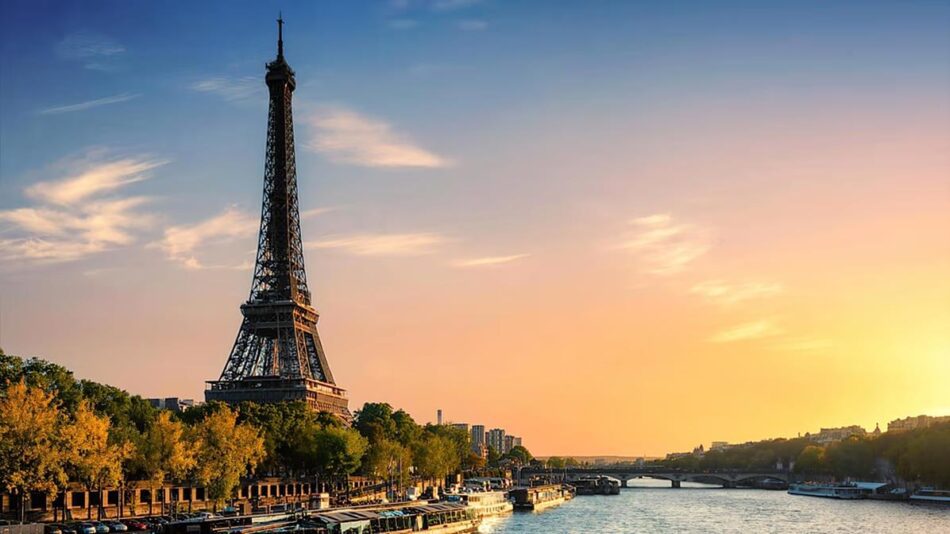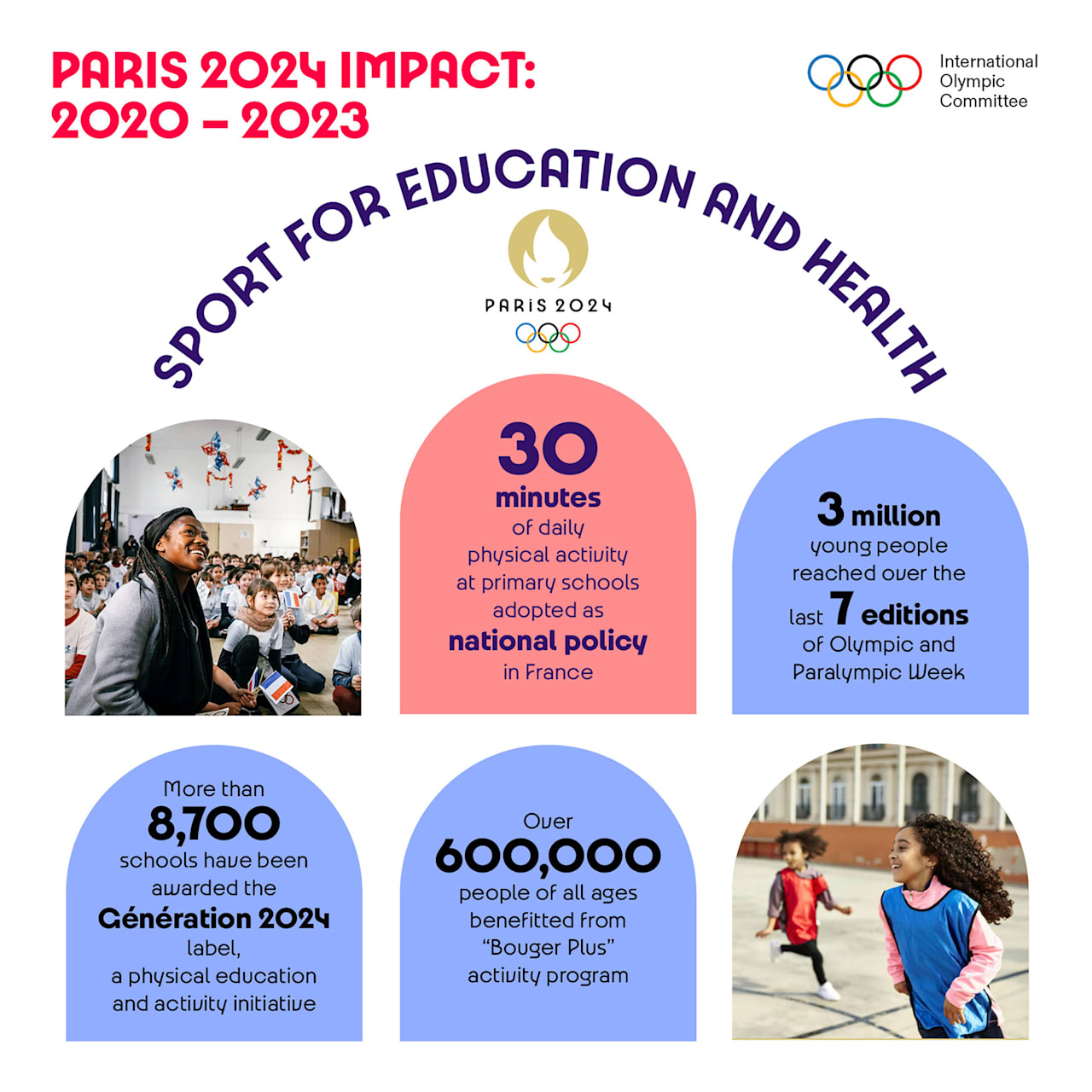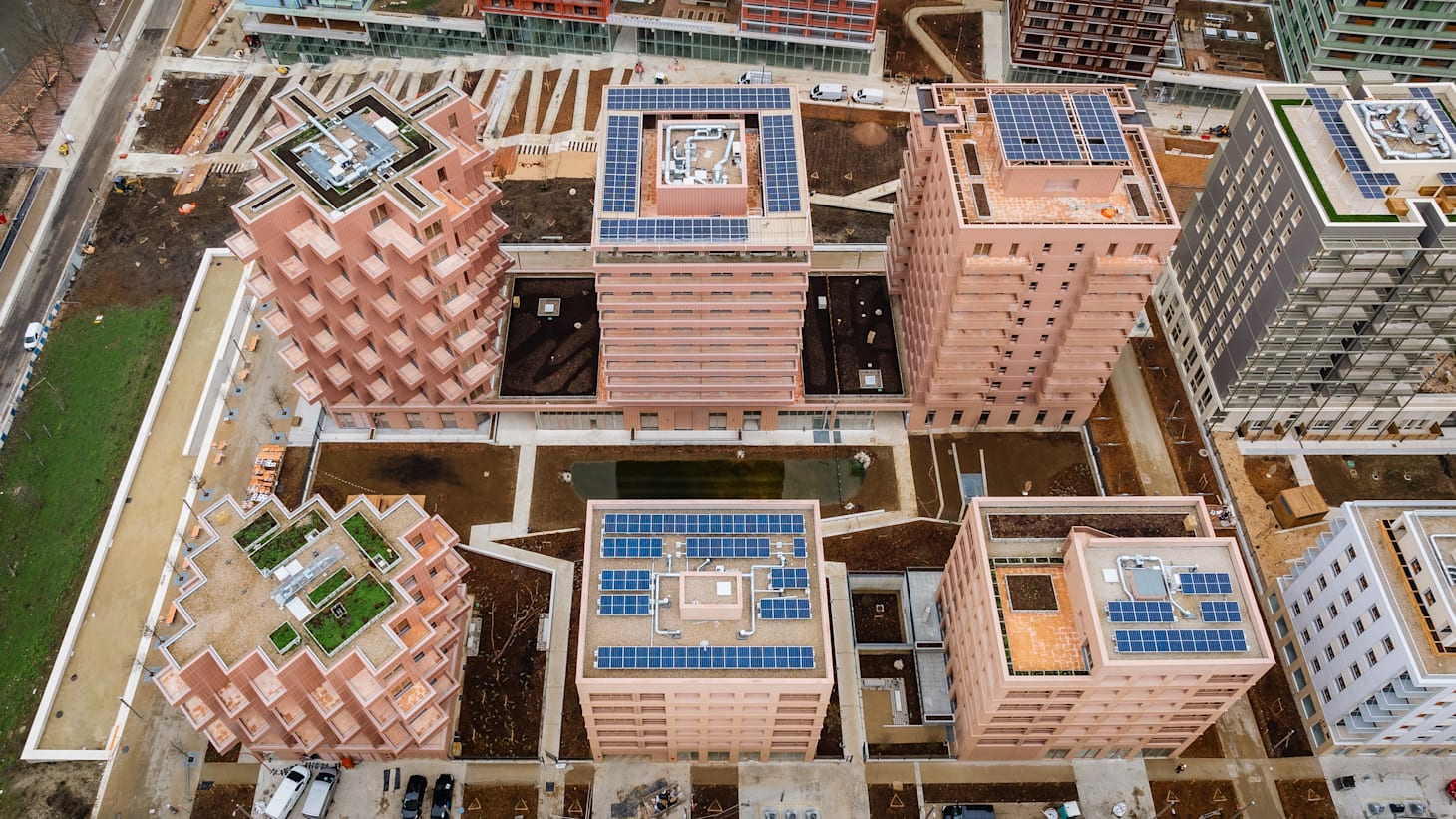Paris 2024 legacy benefitting millions across France

10 June 2024 – As the first Games fully aligned with Olympic Agenda 2020, Paris 2024 is showing how bringing the Games to a country can bring social, economic and health benefits to its people. The legacy of Paris 2024 is already visible across the nation – from getting people more involved in sport to creating equal economic opportunities for everyone and catering to the needs of local communities.
Sport for health and education
The Paris 2024 “Bouger Plus” (Move More) campaign aims to bring more sport to more people, as part of an ambition to combat sedentary lifestyles and obesity – a growing issue among the French population.
Paris 2024 successfully advocated and supported the implementation of a daily 30-minute exercise period at all French schools. Adopted as a national policy, the campaign is being progressively introduced into all 36,250 primary schools. The positive impact of daily exercise on pupils is already visible, with 94 per cent of teachers reporting an improvement in children’s well-being, attention and concentration.
To further promote physical activity among young French people, schools and higher education establishments can be awarded the Generation 2024 label, recognising their joint efforts with local authorities and sports clubs to actively foster sports practice. So far, more than 8,700 schools and higher education establishments across the nation have obtained the label.

In Seine-Saint-Denis, where half of kids aged 11 do not know how to swim, Paris 2024 has offered free swimming and water safety lessons to more than 9,400 children since 2020. The “1,2,3 Nagez!” (1,2,3 Swim!) project has now reached kids across the whole of France, teaching more than 26,000 children essential swimming skills.
The Terre de Jeux 2024 label, meanwhile, brings local authorities, sports clubs, federations and leagues together to collaborate on projects that promote the Games and get people in France more involved in sport. More than 50,000 projects have been facilitated by partnerships under the Terre de Jeux accreditation.

And Paris 2024 set up the first-ever Olympic legacy-focused investment fund, Impact 2024, to finance projects that promote health, well-being, education, inclusion, equality and environmental improvements. With EUR 47 million in funding distributed, the endowment fund has supported more than 1,100 grassroots projects to date.
Social and economic legacy
In line with its “Games wide open” slogan, Paris 2024 is creating equal economic opportunities for everyone. Aiming for more inclusive, more responsible and more sustainable Games, it developed a Social Charter, a first in Olympic host history.
The Social Charter was signed in 2019 by public and private stakeholders, trade unions and employer organisations, and its 16 commitments focus on decent working conditions, social inclusion and ensuring small- and medium-sized enterprises get access to project contracts.
The Social Charter commitments are clearly being met, as some 181,000 people have found employment in Games-related jobs. As for keeping it local, 90 per cent of the Paris 2024 Games suppliers are French, while 78 per cent of them are small- and medium-sized businesses, with more than 500 local businesses from the social and solidarity economy (ESS).
Venue legacy
As per Olympic Agenda 2020, the Games adapt to host city needs, and not the other way around. To reduce cost and carbon emissions, hosts are required to prioritise existing and temporary venues and only build new infrastructure where there is a long-term need for it, and to the highest sustainability standards possible.
The location of one of the few venues built for the Games, the Aquatics Centre, is a strategic choice. Located at the heart of Seine-Saint-Denis, which lacks sports facilities and where one in every two 11-year-olds cannot swim, the venue will become a multi-sports facility after the Games, catering to the needs of the local population over the long term.

After hosting 15,000 athletes from over 200 nations, the Olympic Village will provide more than 2,800 new homes to the local population. A quarter of these new apartments will become public housing, and the rest will be rented out at affordable prices for low-income residents. Additional offices, shops, restaurants and leisure centres on site are planned, with the hope being to reduce the unemployment rate in the district, which currently exceeds 20 per cent.





